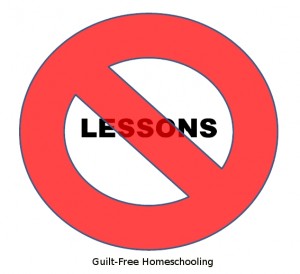Typically, homeschoolers talk about the blessings and benefits of homeschooling, which are myriad. However, sometimes Life throws us a curveball — and once in a while, several curveballs — too many to deal with casually as part of the normal course of events. If you have found yourself the unwitting recipient of these circumstances, you may be worrying that your family is just not progressing with homeschooling as quickly as you should or even as well as you used to do. If you feel you are on the verge of a homeschool breakdown, the cause may not necessarily be something you are doing wrong — it may just be due to too many complex situations occurring at the same time or in rapid succession. The following list of unique situations may contain some of the things your family has experienced that you previously had not considered as being directly related to your rate of academic progress (or lack of progress).
1. Homeschooling for the first time
2. Leaving public or private school to switch to homeschooling
3. A reluctant learner who balks at the idea of schoolwork in general
4. An eager learner who wants to explore extensively into each topic
5. Pregnancy
6. Childbirth
7. Adoption
8. An infant
9. A toddler
10. A special needs child
11. A chronic illness or other health crisis affecting any family member
12. A severe injury requiring extended recovery or rehabilitation for any family member
13. An elderly parent/grandparent who needs care or must be moved to a care facility
14. Extensive property damage from fire, flood, or natural disaster
15. A legal or financial crisis
16. A job change
17. Moving to a different home
18. A wedding
19. A divorce
20. A death in the family
21. Miscarriage or stillbirth
Please note that this list is not complete. You may be experiencing some things that are not listed here and yet have been just as devastating to your “normal” routine. If your family has experienced more than one of these items in the past year or in consecutive years, please consult the article Top 10 Benefits of Homeschooling with Grace and Topical Index: Doing Your “Best” and Topical Index: Encouragement for Parents for some much-needed comfort and uplifting encouragement. If you have reason to anticipate any of these events in your foreseeable future, try to plan ahead as much as is humanly possible in order to prepare yourselves for the upcoming event and its schedule-altering effects. Please note that some of these factors cannot be predicted at all, some will last only a few months, but others may continue for years or for a lifetime (such as a special needs child).
Above all else, know that when your family encounters the types of situations listed above, your children will have experienced Life up-close and personally, and that in itself is an education that no textbook can provide!






 Guilt-Free Homeschooling is the creation of Carolyn Morrison and her daughter, Jennifer Leonhard. After serious disappointments with public school, Carolyn spent the next 11 years homeschooling her two children, from elementary to high school graduation and college admission. Refusing to force new homeschooling families to re-invent the wheel, Carolyn and Jennifer now share their encouragement, support, tips, and tricks, filling their blog with "all the answers we were looking for as a new-to-homeschooling family" and making this website a valuable resource for parents, not just a daily journal. Guilt-Free Homeschooling -- Equipping Parents for Homeschooling Success!
Guilt-Free Homeschooling is the creation of Carolyn Morrison and her daughter, Jennifer Leonhard. After serious disappointments with public school, Carolyn spent the next 11 years homeschooling her two children, from elementary to high school graduation and college admission. Refusing to force new homeschooling families to re-invent the wheel, Carolyn and Jennifer now share their encouragement, support, tips, and tricks, filling their blog with "all the answers we were looking for as a new-to-homeschooling family" and making this website a valuable resource for parents, not just a daily journal. Guilt-Free Homeschooling -- Equipping Parents for Homeschooling Success!

Recent Comments